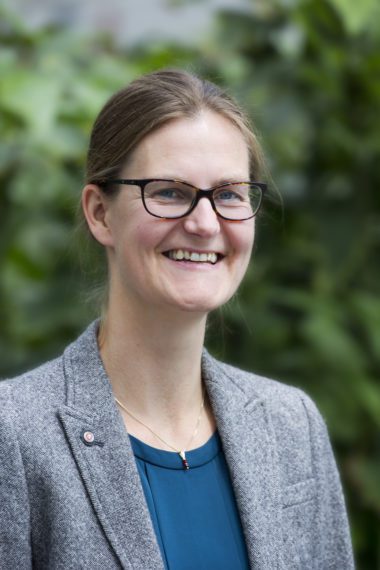
Please join us in congratulating, 2019 GBS|CIDP Research Grant Recipient, Ruth Huizinga, PhD, Assistant professor, Department of Immunology, Erasmus MC, University Medical Center, Rotterdam, The Netherlands.
Project Title: Identification and characterization of circulating plasmablasts that produce anti-ganglioside antibodies in patients with Guillain-Barré syndrome.
Synopsis: Antibodies (Abs) to gangliosides play a key role in the pathogenesis of a proportion of patients with Guillain-Barré syndrome (GBS). Although these Abs have been characterized extensively, little is known about the cells that produce these Abs. We have recently demonstrated that plasmablasts, precursors of plasma cells, are elevated in the peripheral blood of one-third of the patients with GBS and that dominant B-cell clones can be identified.Moreover, preliminary data indicate that isolated plasmablasts can be cultured in vitro and secrete anti-ganglioside Abs. Further studies are required to substantiate these findings.
Ruth Huizinga studied medical biology at the Vrije Universiteit in Amsterdam, The Netherlands, where she developed a strong interest in neuroimmunology. Her PhD-research, performed in the group of Professor Sandra Amor, focused on autoimmunity to neuronal antigens in multiple sclerosis. After obtaining her degree in 2008, she joined the group of Professor Bart Jacobs at the department of Immunology (Erasmus MC, Rotterdam, The Netherlands) to work as post-doctoral researcher on the pathogenesis of the Guillain-Barré syndrome (GBS). She investigated the mechanism and extent of dendritic cell activation by Campylobacter jejuni in healthy persons and patients with GBS. As visiting scientist in the laboratory of Professor Hugh Willison (University of Glasgow, Scotland, UK), she further studied the development of antibodies to glycolipids in mice.
In 2014, back at the Erasmus MC in Rotterdam, she obtained the Benson Clinical Research Fellowship (from the GBS/CIDP Foundation International) to elucidate whether innate responsiveness to microbial triggers is predisposing to the development of GBS. In 2015 she was awarded the AK Asbury prize for best oral presentation at the biennial meeting of the Peripheral Nerve Society (Quebec, Canada) for her work on innate immunity to Campylobacter jejuni in GBS.
Over time, she established a unique collection of leukocytes from patients with immune-mediated neuropathies that will now be used to identify and characterize cells that produce neurotoxic antibodies.
Stay tuned for more 2019 research grant awardee announcements in upcoming weeks.
